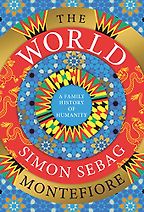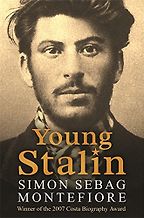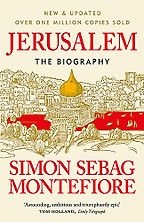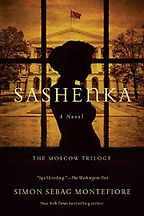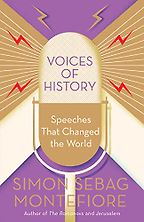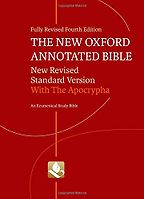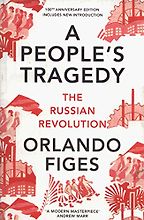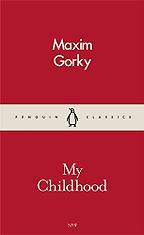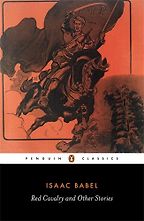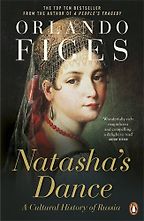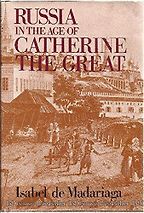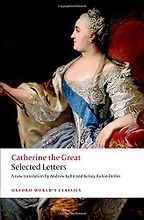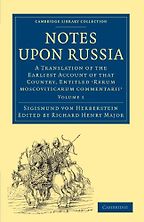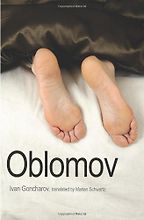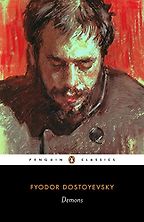
Books by Simon Sebag Montefiore
Simon Sebag Montefiore is a prizewinning historian and novelist whose bestselling books have been published in over 48 languages. His works of history have won prizes in the United Kingdom, United States, France, Austria and Italy. His interview with us is about the best books on Jerusalem, and his own books have been recommended on Five Books many times. His own favourites are his works of historical fiction—the three books, starting with Sashenka, that make up his Moscow trilogy.
The World: A Family History of Humanity
by Simon Sebag Montefiore
The World: A Family History by Simon Sebag Montefiore is a doorstopper of a book but a fabulous way to read about world history on a truly global scale across thousands of millennia. What holds it together is a focus on families, starting with the first footprints of a family ever found right the way through to the Trump family. As Sebag Montefiore explains at the beginning, this a work of synthesis, based on his reading and travels over the decades, written up during the Covid lockdowns. It's a really remarkable work of popular history, and a lot of fun to read.
“Montefiore quotes a couple of ambassadors to Russia who had personally met Napoleon and George Washington. And both of them said that Potemkin was the most impressive personality that they’d ever seen. The book confirms that perception. It tells the story of this incredible personality and his incredible love which continued after Catherine and Potemkin ceased to be lovers and lasted until Potemkin’s death in 1791—five years before Catherine, although he was 10 years her junior.” Read more...
The best books on Catherine the Great
Andrei Zorin, Historian
“You can see in the young Stalin considerable signals that he is a very strange man of certain twitches, but a man of great charisma. I suppose the question that Sebag Montefiore doesn’t ask is whether Stalin’s imprisonments made him worse than he would have been otherwise. Stalin was a great bank robber, the Butch Cassidy of the Bolsheviks. He was not a hugely advanced thinker but he definitely had a sense of what was wrong with his time and place.” Read more...
The best books on Revolutionary Russia
Thomas Keneally, Novelist
Jerusalem: the Biography
by Simon Sebag Montefiore
In Jerusalem: the Biography British historian Simon Sebag Montefiore tells a sweeping tale, covering 3000 years of history, of one of the world's most important and contentious cities. First published in 2011 to widespread acclaim, a new and updated 10th anniversary paperback edition was published in late 2020. We also spoke to Simon about other books to read to learn more about Jerusalem, including a cookbook.
Sashenka
by Simon Sebag Montefiore
Sashenka is a historical novel in three parts that opens in St Petersburg just before the Russian Revolution. The second part is set in Moscow under Stalin, in 1939. The third part is set in modern times (1994) in the Caucasus, London and Moscow. It's a pacy read and especially interesting because it's written by a historian of Russia, Simon Sebag Montefiore. Sashenka is from a privileged Jewish family, and the book is the first of Sebag Montefiore's Moscow Trilogy. (The other books are One Night in Winter—set in Moscow in 1945—and Red Sky at Noon, set in Russia during World War II). Of all the books he's written, the trilogy is Simon Sebag Montefiore's own favourite, he told us via Twitter.
Voices of History: Speeches That Changed the World
by Simon Sebag Montefiore
Voices of History: Speeches That Changed the World is a great book to have somewhere you can easily dip into it. The first two speeches are by Jesus and Mohammed; the last two by President Putin and Malala Yousafzai. There’s plenty in between, but most of them are from the 20th century. There are baddies here—Lenin, Stalin, Hitler—as well as goodies. Each speech comes with a short biography of the speaker and a useful introduction to the speech’s historical context.
Interviews with Simon Sebag Montefiore
The best books on Jerusalem, recommended by Simon Sebag Montefiore
Jerusalem is one of the most beautiful cities in the world and a place of longing for three faiths—and yet we know it mostly as a place of strife and conflict. British historian Simon Sebag Montefiore, author of Jerusalem: the Biography, recommends books that capture the historical ups and downs of this ever-changing city, but also its vitality, including its irresistible cuisine.
Interviews where books by Simon Sebag Montefiore were recommended
The best books on Revolutionary Russia, recommended by Thomas Keneally
Best-selling author Thomas Keneally explains that the Cold War biographies couldn’t afford to say that Stalin was attractive, or that Lenin was magnetic, but they were, because otherwise people wouldn’t have followed them. He picks some great introductions to Revolutionary Russia.
-

1
Russia in the Age of Catherine the Great
by Isabel de Madariaga -

2
Catherine the Great
by Simon Dixon -

3
Catherine the Great and Potemkin: The Imperial Love Affair
by Simon Sebag Montefiore -

4
Selected Letters of Catherine the Great
by Catherine the Great -

5
Working the Rough Stone: Freemasonry and Society in 18th Century Russia
by Douglas Smith
The best books on Catherine the Great, recommended by Andrei Zorin
The best books on Catherine the Great, recommended by Andrei Zorin
She was born in 1729 as Sophie of Anhalt-Zerbst, a German princess, but by 1762 had become Empress of All Russia and went on to rule for 34 years as Catherine II. She regarded herself as an enlightened despot who embraced the ideas of the Enlightenment and consorted with the French philosophes. Russian historian Andrei Zorin introduces the remarkably industrious and able politician who is remembered as Catherine the Great.
The best books on Tsarist Russia, recommended by Andrei Maylunas
From the days it was known as Muscovy to the Russian Empire described by the great novelists of the 19th century, historian Andrei Maylunas recommends books that give a feel for the country. Two are works of history, one is notes from a visiting ambassador in the 16th century, two are novels. All are entertaining to read and key to understanding the present.
